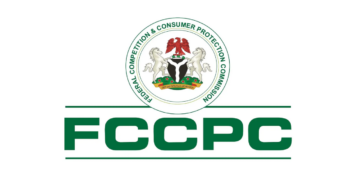The Nigerian Midstream and Downstream Petroleum Regulatory Authority (NMDPRA) has introduced stricter regulations on lubricant importation, including the issuance of importation licences through a new digital platform designed to enhance transparency and compliance in the sector.
This move aims to ensure that only high-quality lubricants enter the Nigerian market thereby protecting local producers and consumers.
This is coming up as local manufacturers, said they have lost over N10 billion due to the rising importation of substandard, recycled and fake oils into the Nigerian market.
The Authority, on Wednesday, launched a digital platform called the Lubricant Importation Permit Platform (LOPP), aimed at streamlining approval processes, ensuring quality compliance, and monitoring all lubricant imports into the country.
Speaking at a stakeholder workshop held in Abuja, the chief executive of NMDPRA, Engr. Farouk Ahmed, said the initiative was designed in collaboration with the Central Bank of Nigeria (CBN), the Nigeria Customs Service and other agencies.
Ahmed, who was represented by the executive director, Hydrocarbon Processing Plants, Installations and Transportation Infrastructure, Engr. Francis Ogaree, explained that the initiative aligns with the provisions of the Petroleum Industry Act (PIA), which mandates the agency to ensure that all petroleum products, including lubricants, meet strict quality and safety standards.
“This digital platform is integrated with a custom services platform ensuring seamless import clearance, real-time data tracking and improved compliance enforcement.
Ahmed further noted that “We take this responsibility seriously as poor-quality lubricants do more than damage engines—they damage trust, hurt productivity, and create unnecessary economic waste.
“That is why today’s workshop focuses on the rollout of the Lubricant Importation Module on the Lube Oil Blending Plant (LOBP) Portal—a tool designed to simplify the application, approval, and monitoring process for lubricant imports. This digital platform is integrated with the Nigeria Customs Service BÓdogwu platform, ensuring seamless import clearance, real-time data tracking, and improved compliance enforcement.”
The NMDPRA boss said the platform means faster approvals, better transparency, and clearer expectations for the importers.
On the other hand, he said for the local producers, the enhanced oversight will help identify products that can and should be produced locally giving their businesses more room to grow in a level playing field.
He said for all industry players, it means improved accountability and shared responsibility for upholding the integrity of the Nigerian market.
Ahmed stressed the fact that the platform was not designed to restrict trade but to strengthen the industry.
“Let me be clear, initiative is not designed for strict trade, rather it is meant to strengthen our industry, to ensure only high-quality products circulate in the market and align with President Bola Tinubu’s industrialisation agenda to reduce over-reliance on imports and promote local capacity,” he said.
“Poor quality lubricants do more than damage engines, they damage the truss. They damage and harm our productivity and create unnecessary economic waste,” he stated.
His words: “Let me be clear—this initiative is not designed to restrict trade. Rather, it is meant to strengthen our industry, ensure only high-quality products circulate in the market, and align with President Bola Ahmed Tinubu’s industrialisation agenda to reduce over-reliance on imports and promote local capacity.”
However, local producers under the Lubricant Producers Association of Nigeria (LUPAN) raised concerns that the continued issuance of permits for finished lubricants is pushing indigenous companies out of business.
Delivering a good will message, Chairman of AMMASCO Group, Mustapha Muhammad, warned that most of the imported lubricants in the country are recycled and substandard, blaming them for rising losses and declining production capacity in the sector.
“Most of the products that are imported to the Nigerian market today are substandard. They are recycled oils. They use recycled oil in Dubai, which everyone knows is the center of the transshipment of load from Europe to Asian countries to African countries. They have a lot of recycled oil which they bring from the ships, oil they are supposed to discard and destroy, but they now sell it at a cheap price to those who buy recycled oil and export it to Nigeria and African markets. Those are the oils that usually lock our cars and trucks because of the cheap price they are selling at,” he said.
According to him, “Many of our members have lost from N10 billion, N8 billion, N6 billion, N2 billion capacity. I mean the Naira they lost.
Muhammad noted that local producers are currently operating at 30 to 40 per cent capacity and risk shutting down further if not protected. “Most of our members today are working from 7 O’clock in the morning to 5 O’clock in the evening. If we have the capacity that we can work three shifts in the day, I’m sure it will expand to 70 percent of our capacity,” he said.
He also alleged that importers are disguising their shipments to bypass regulations. “They label it as secure part. They put some in the secure part and they declare it as the secure part. But when they brought the containers out we discovered that it was engine oil inside,” he said.
meet the 60 per cent lubricant supply gap in the country by encouraging producers to invest.
In a presentation, Ngozi Nwankwo, Director, Liquid, HPPITI, said the new requirements became necessary to stop substandard lubricants circulation, monitor imports and improve visibility, support local blending, reduce dependency and protect consumers and machinery.
“Lubricant Import Licence is an official authorisation issued by the NMDPRA. It grants eligible companies the legal right to import lubricant products into Nigeria,” she said.
Mrs Nwankwo said that the development would ensure that only traceable entities were engaged in lubricant importation, to uphold regulatory, safety, environmental and quality requirements.
Also speaking, executive secretary of LUPAN, Emeka Obidike, stated that the current policy threatens to collapse Nigeria’s lubricant industry.
“The policy will sound a death to the entire existing plants in the country who are currently producers below 30 per cent of installed capacities. It will kill the growth recorded in the last few years in the sector, and set back the lubricant policy of the federal government, which is currently being perfected by the federal ministry of Industry Trade and Investment,” he said.
“There will be an increase in breakdown to machineries all over the country, as a result of low quality Lubricant imported into the country, with recycled oils without additives. The new policy will ultimately create serious compromise, similar to what the sector is experiencing in the indiscriminate granting of basic oil import permit licence to none plants,” he added.
Obidike warned that over 200,000 jobs could be affected. “Many companies might slip into bankruptcy and insolvency because of the huge loss. Every country protects the key business that they have due advantage. Same is expected from your esteemed agency rather than to kill the same,” he said.
Representing the Nigeria Customs Service, Assistant Comptroller Umar Aliyu, expressed support for the regulatory reforms.
He said: “We are very happy to be here because one of the mandates of the Nigerian Customs Service is to implement government fiscal policies. Also, we are at the forefront when it comes to customs clearance.
“It is part of the permit that all the stakeholders that are involved in this industry can look at. And the sensitization that is going on now within the stakeholders is one of the key aspects. Because the mantra of this government is what? Renewable. Well, this is the right way to get it right.” he added.





